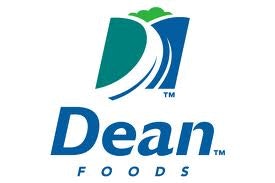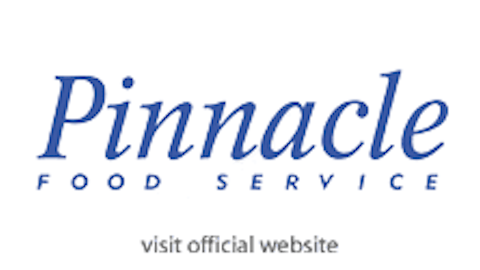Dean Foods Co (NYSE:DF) finished the official spin-off of The WhiteWave Foods Co (NYSE:WWAV) earlier this year. Now the question is, is either stock worth investing in? Both stocks should perform nicely on the back of a growing population; as the global population grows at an increasingly rapid pace, this means there are more mouths to feed, which is a positive for food companies. As you can see, there are no signs of a slowdown in population growth; if anything, the population-growth explosion is still in full force.

Source: Duke University
What happened?

Earlier this month, Dean Foods announced plans to assign a portion of its remaining stake in WhiteWave to its shareholders, leaving the company with a minority stake of 19.9% in WhiteWave.
Product shakedown
In the Dean Foods Co (NYSE:DF) versus WhiteWave battle, I think Dean Foods’ more diversified products portfolio should reward investors better over the long term. The WhiteWave Foods Co (NYSE:WWAV)’s brands include Silk, The Organic Cow, Horizon Organic, International Delight, Land O Lakes and Alpro. WhiteWave operates throughout North America and Europe.

Source: WhiteWave website
Meanwhile, Dean Foods Co (NYSE:DF) is a leading processor and distributor of milk and other dairy products in the U.S., with a diverse product portfolio that caters to regional tastes.

Source: Dean Foods website
One of the big headwinds going forward for The WhiteWave Foods Co (NYSE:WWAV) will be the continued economic weakness in Europe. While growth in the U.S. appears to be picking up, economic growth expectations for Europe remain well below North American levels. WhiteWave gets nearly 17% of sales from Europe, while Dean Foods operates primarily in the U.S.
Some of Dean Foods Co (NYSE:DF)’s key initiatives include divesting non-core assets to help promote longer-term earnings growth. Dean Foods divested its Morningstar business to Saputo for $887 million in early 2013, and now the company is looking to cost reduction. In 2012, the company saved more than $300 million under its ongoing cost-reduction program started in 2009.
Dean Foods Co (NYSE:DF) also had Adage Capital as its top hedge fund shareholder, owning some 4 million shares, going into 2013 (check out Adage’s high yielders). Also, the company saw hedge funds with serious conviction, including Sheffield Asset Management with 8.7% of its portfolio invested and Harbert Management with 5.3% of its portfolio. Meanwhile, The WhiteWave Foods Co (NYSE:WWAV) has seen little to no hedge fund interest when it comes to being heavily invested in the stock; but one of the most notable investors was Pine River Capital (see Pine River’s high yielding stocks).
Other notables
A couple of the other major nutrition and health-based food companies include Mead Johnson Nutrition CO (NYSE:MJN) and General Mills, Inc. (NYSE:GIS). Mead Johnson is a a global leader in pediatric nutrition, with more than 70 products distributed across 50 worldwide markets. In essence, Mead has managed to carve out a niche part of the market, namely with its leading infant-formula products.
Some of Mead’s best growth prospects remain in emerging markets, including Asia and Latin America. By 2014, Latin America and Asia are expected to account for 60% of revenue. These markets should be lifted by rising incomes and expanding economies. The key hesitation for investing in Mead is its valuation, as the stock trades at 28 times earnings and more than 4 times sales. Mead Johnson Nutrition CO (NYSE:MJN) does have impressive hedge fund interest, with billionaires Stephen Mandel of Lone Pine Capital and Ken Griffin of Citadel Investment Group being two of the nutrition company’s top shareholders (check out Mandel’s top picks).
General Mills, Inc. (NYSE:GIS) has diverse portfolio of products, namely in the healthy and convenience-packages sector. Health and nutrition are a key focus of the company, where these product types make up some 70% of its U.S. retail volume. General Mills is also looking to focus on the faster-growing food markets outside of the U.S. For fiscal 2012, 30% of revenue was generated outside the U.S. and over the last five years, General Mills has grown international sales at a high single-digit compound rate
By the numbers
Let’s see how Dean and WhiteWave shape up from a valuation standpoint.
| Forward P/E | 5-Yr. Expected EPS Growth | PEG Ratio | |
| Dean Foods | 14.8 | 14% | 1.1 |
| WhiteWave | 22.3 | 18% | 1.3 |
| Mead Johnson | 22.9 | 11% | 2.1 |
| General Mills | 16.7 | 8% | 2.2 |
The WhiteWave Foods Co (NYSE:WWAV) appears to be near the high end of the industry on a forward P/E basis. However, its expected growth doesn’t really justify such a premium valuation. Dean Foods Co (NYSE:DF)’s lower P/E and reasonable EPS growth puts its PEG lower than WhiteWave, and suggest that Dean Foods might be a better buy.
Digging a bit deeper, we see that Dean Foods also has an ROE that’s nearly three times WhiteWave’s.
| Return on Equity | |
| Dean Foods | 28% |
| WhiteWave | 11% |
Bottom line
Overall, the fact that Dean Foods Co (NYSE:DF) has shed some non-core assets should help the company trade at a higher multiple in the future as the market recognizes the cost benefits. The company has room to grow internationally, and is also better positioned from a valuation and return on equity standpoint than its The WhiteWave Foods Co (NYSE:WWAV) spin-off. As well, Mead Johnson appears to be a bit expensive, while General Mills has below average EPS-growth prospects, so I’d avoid those two as well.
Marshall Hargrave has no position in any stocks mentioned. The Motley Fool owns shares of Dean Foods Company and WhiteWave Foods. Marshall is a member of The Motley Fool Blog Network — entries represent the personal opinion of the blogger and are not formally edited.
The article Feast on This Food Company or the Leftovers? originally appeared on Fool.com and is written by Marshall Hargrave.
Copyright © 1995 – 2013 The Motley Fool, LLC. All rights reserved. The Motley Fool has a disclosure policy.


